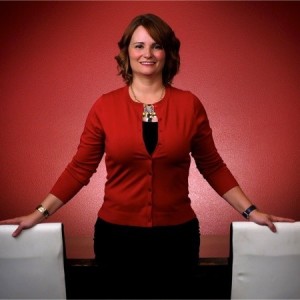
The Global Marketing Show, hosted by Wendy Pease at Rapport International, helps growth-minded marketers expand into international markets and boost multilingual lead generation and revenue. Each episode features experts from industries like medical devices, industrial manufacturing, consumer brands, government, and education sharing real-world lessons on how to go global the right way. Discover actionable strategies for translation, localization, transcreation, and cultural adaptation, plus insights on the technologies, workflows, and quality standards that drive global marketing success. Whether you manage global campaigns, oversee multilingual content, or lead international sales, this podcast is your guide to building a brand that connects across languages and cultures.
The Global Marketing Show, hosted by Wendy Pease at Rapport International, helps growth-minded marketers expand into international markets and boost multilingual lead generation and revenue. Each episode features experts from industries like medical devices, industrial manufacturing, consumer brands, government, and education sharing real-world lessons on how to go global the right way. Discover actionable strategies for translation, localization, transcreation, and cultural adaptation, plus insights on the technologies, workflows, and quality standards that drive global marketing success. Whether you manage global campaigns, oversee multilingual content, or lead international sales, this podcast is your guide to building a brand that connects across languages and cultures.
Episodes

Wednesday Sep 28, 2022
Clarifying Customs Paperwork and Regulations - Show #91
Wednesday Sep 28, 2022
Wednesday Sep 28, 2022
Kim Daniels, CEO of Mercantile Logistics & International Trade, has years of experience translating the complex regulations, classification requirements, and intricacies of the best way to move your products around the world.
If you took marketing in college, you learned about the 4 P’s of marketing – product, price, promotion, and place. This episode of the Global Marketing Show covers Place – how to get your product from place A to place B.
We asked Kim to explain, why would consumer product companies bother exporting bins of products rather than just selling through ecommerce. She gave a great example of a swim wear company that she worked with – by sending their products to the Caribbean and Mexico, they increased their sales by 30%. It made sense because when people travel, they may forget their bathing suits, they spend more time shopping, and are willing to spend money.
For the companies that she works with, she suggests that they look for the following criteria in a market.
- Look for free trade zones to avoid heavy taxes and duties.
- Find markets where clients want your goods (Mexico was a better choice than Canada for bathing suits!)
- Avoid markets where the products are in an industry that the country wants to protect.
- Start small, figure out the process, and then grow.
- Look for a market close to you to minimize shipping costs.
- Expand!
One key component is to get the classification of your products right to avoid hold ups at the border, fines, or getting a bad reputation and having problems forever more.
There are thousands of classifications – for example, if you manufacture footwear, there are type classifications such as boots, sneakers, flip flops, AND there are further sub-classifications for the materials the products contain. It’s worth talking to an experienced customs broker to get the classification code accurate. Once you know the code, you can have the customs broker do the paperwork, or you can spend the hour on the government site filling out the paperwork. Kim says she’s willing to spend an hour on the phone consulting for free to help companies with their exporting journey.
One warning – if you sell any good that are controlled, you need an additional ECCN# and if you have products that could be used for military or parts of military products, you are regulated by ITAR (International Traffic Arms Regulations). Violating any export regulations could lead to HUGE fines. To protect the safety of the US, these regulations are strict and people who violate them are considered guilty unless proven innocent. Step #1 is to make sure your products are not under ITAR regulations.
One opportunity – Craft beers are highly regarded in the UK. If you create craft beers in the US and want to increase your sales, reach out to Kim fast! She can help you make connections to send vats of your beer to the UK, where they can bottle and sell it.
As for “Made in America” versus “international trade”? Kim is a fan of trade. She cites research that shows that the more a company trades, the better their economy. (In an upcoming episode, we’ll talk about the “container graveyard” that contains all the empty containers that brought goods into the US. US companies that fill those containers and send goods out, perform better than those that just sell in the US. Since the graveyard is so big, we need to start exporting more.)
Kim’s final recommendations –
- Trade works best when it’s a holistic process. For example, the US exports textiles to be made into shirts that we import back in. This benefits both countries.
- Foreign trade zones can be used to your advantage – Mercedes, Honda, and Toyota import parts to build the cars in foreign trade zones. By manufacturing the final products here, they lower their import taxes while creating jobs here.
- Do a feasibility study to find the best place to export your goods.
Her favorite foreign word? Schadenfreude – as she says it’s got a frenemy feel to it. This German word has no English equivalent, it translates into that feeling of pleasure derived from another person’s misfortune.
Links:
https://www.mlitinc.com/
Connect with Wendy - https://www.linkedin.com/in/wendypease/
Connect with Kim - https://www.linkedin.com/in/kim-daniels-a5b9268/
Music: Fiddle-De-Dee by Shane Ivers - https://www.silvermansound.com

No comments yet. Be the first to say something!